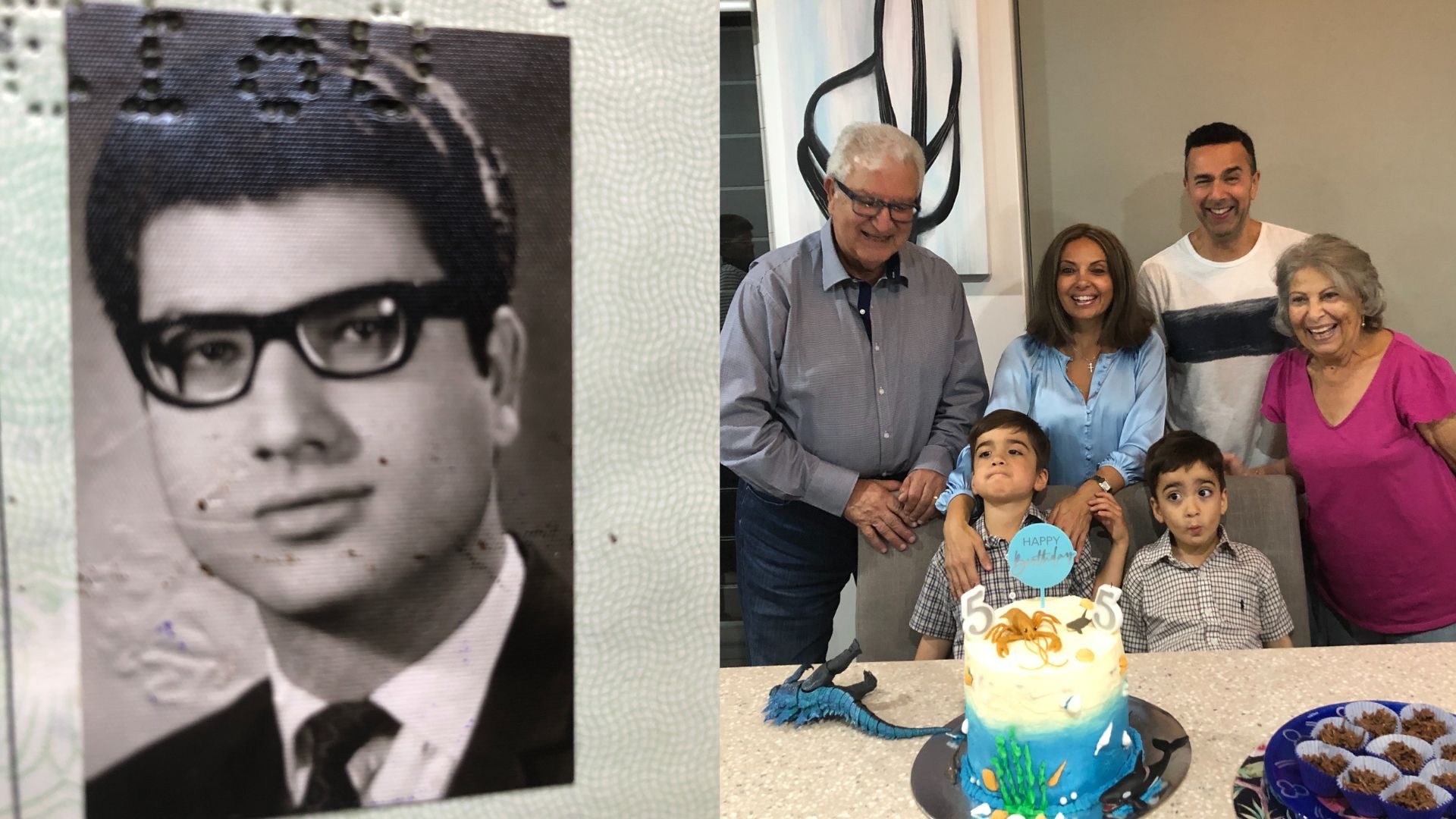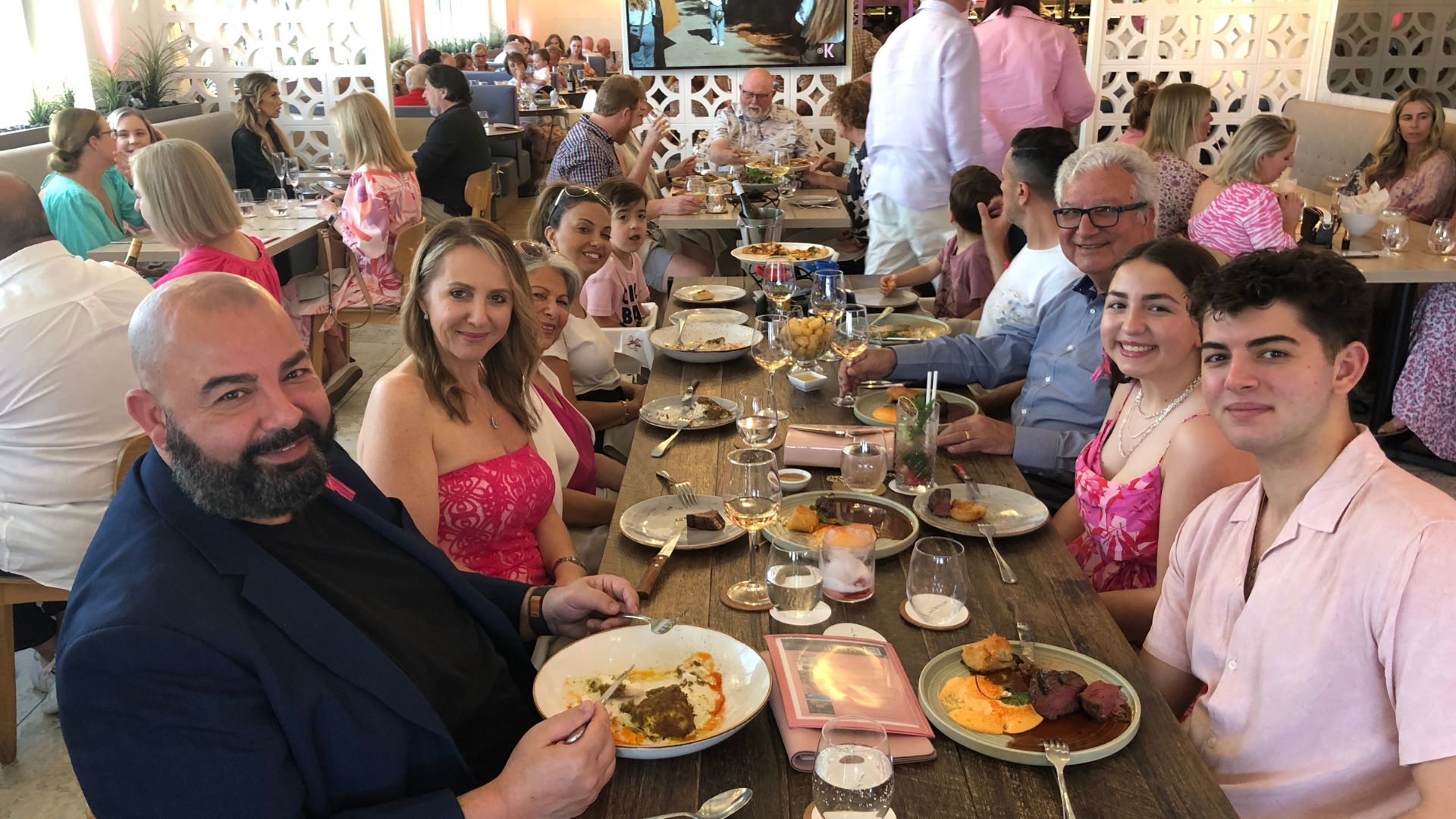Meet Gaston: The happily retired investor with the secret to getting rich
Gaston has been investing far longer than many of the professionals in the market. Having started at 28 years old, back in 1974, he's been fine-tuning his trade for five decades.
Back when he started, he didn't have much to invest. Gaston earned under $20 a week, but spent hours reading and learning all he could about markets. He bought a few classic compounders early on, like Commonwealth Bank (ASX: CBA), Woolworths (ASX: WOW), Telstra (ASX: TLS) and Harvey Norman (ASX: HVN). He re-invested the dividends he earned on these shares, and eventually, his portfolio began to grow.
Today, Gaston no longer needs to invest. Early on, he learnt the secret to getting rich wasn't a quick and easy win taking a punt on a company in the share market - but paying down your debts.
Now, he has enough money to live comfortably - and that's enough for him. Nothing could make him more happy than being able to help his kids and grandkids in ways that his own parents couldn't.
"The money I don't need, I give to my kids and grandkids. I would rather give it to them now so they can pay their debts quickly and educate their children at the best level," Gaston says.
In this Meet the Investor profile, Gaston openly shares some of the challenges he's faced during his journey, the joy he gets from helping his family, and some of the investments that are helping him finance his retirement.
Investor Profile:
- Name: Gaston Sayegh
- Job: Retired
- Age: 78
- Years spent investing: 50 years
- Biggest investment: My houses, my shares, my SMSF
- Secret talent: I love reading, I spend two hours each morning reading about markets
.jpg)
How did you start investing and what was your first investment?
I started investing in 1974. My first investments were Commonwealth Bank (ASX: CBA), Woolworths (ASX: WOW) and then Telstra (ASX: TLS). I used to reinvest all my dividends. That's why my portfolio started to build up.
After technical college, I started working with Harvey Norman (ASX: HVN) - he was very nice, and he knew my English wasn't 100% - but he knew I was good with figures, and gave me a job as an office manager. After two or three years, I became an admin manager of the first Harvey Norman branch. I invested in Harvey Norman when it went public, and that's when I realised there was money to be made in investing. I worked at Harvey Norman for seven or eight years and then got a role with Sydney Water as a financial analyst - where I worked until I was made redundant at 64 and retired.
I read all I could about investing - and learnt about franked dividends. I would go to the library in the city and read all the books I could. I read many Noel Whittaker books - which taught me how to use a spreadsheet, evaluate a company's balance sheet, and calculate investment returns.
I started buying the Financial Review and read articles about solid stocks - and after that, I bought BHP (ASX: BHP), Westpac (ASX: WBC) and ANZ (ASX: ANZ). I also bought some shares in my uncle's company in Canada - which was a big mistake and a big loss, but I learnt the hard way.
I didn't have much money then, I only earned $13-16 a week - which was nothing at the time. I had to buy a house quickly to accommodate my family, so I took out three mortgages. It wasn't easy. And then to make matters worse, interest rates went up to 16-18% - which made it very hard to invest. So I had to put my investments on hold.
When compulsory super was introduced in the 90s, I realised that super was a better investment than shares. We used to salary sacrifice my wife's income and invest all of her money. And whatever leftover cash we had from my salary, we would invest.
How would you describe your strategy and investment goals?
I remember reading a French book - and a line in it has stuck with me. It translates to, "Whoever pays his debts becomes rich". I thought that was a brilliant idea. So, I allocated half of my salary to pay back my mortgage and we salary sacrificed my wife's income. I had a budget for each week, month and year of what we needed.
Today, I don't need to invest anymore. I have started to sell down some of my portfolio holdings - not in my super, but in my personal portfolio - to help my grandkids and kids. I've always believed in education, I don't buy presents - but if my kids or grandkids ever need a book, I will buy it for them.
I remember my grandfather told me, "The best present you can give is books". It doesn't matter if they are not financial books, it can be anything they are interested in. I am glad I can help my children and grandchildren focus on their studies and learning, instead of them worrying about money.
Can you share your top five holdings in percentage terms? Why do you hold these stocks?
I now have a portfolio of 26 shares, because I used the strategy of DRP (dividend reinvestment plan) and live within my budget. My top holdings are:
- Commonwealth Bank (ASX: CBA) - 31.2%
- ANZ Group (ASX: ANZ) - 9%
- National Australia Bank (ASX: NAB) - 9%
- Woolworths (ASX: WOW) - 8%
- QBE Insurance (ASX: QBE) - 7%

I also have large holdings in WAM Microcap (ASX: WMI), Transurban (ASX: TCL) and Woodside (ASX: WDS). But I would sell these first before the five stocks listed above.
I've budgeted $100,000 a year for my wife and me to live off - my portfolio makes $70,000 a year in income and I draw the minimum out of my super. My super is mostly invested in international shares for growth, while my personal portfolio is focused on income. I recently sold Telstra (ASX: TLS) and Westpac (ASX: WBC) and bought Chorus (ASX: CNU). I needed some money for my grandkids, so I sold those positions.
The money I don't need, I give to my kids and grandkids. I would rather give it to them now so they can pay their debts quickly and educate their children at the best level. My dad could not afford to pay for my university, so I had to start working when I was 17 years old. I can help my kids and grandkids now.
What's the point of having all this money and not enjoying yourself? In the last 10 years when we first retired, we went everywhere. There is not one country I haven't visited except Greece. And I don't want to go to Greece. I've done everything I wanted to.
What investment is on your watchlist?
I don't want to buy any more stocks - I have enough for me and my family to live comfortably. I always tell my kids and grandkids the most important thing is "the big C" - which means content. If you are content in life and don't compare yourself to others - and just learn from other people you will be happy and comfortable.
What has been your best and worst investment? What did you learn from that?
My worst investment was Brian McGuigan Wines (now Australian Vintage - ASX: AVG). I invested a lot into that and lost most of it. His daughter took over and opened a new winery called Tempus Two. I still buy the wine because I like it. They still ring me up and give me a discount - I can't complain, I love my wine.
My best-performing shares have been Woodside (ASX: WDS) and Woolworths (ASX: WOW). I'll never sell them until I really have to.
Are there any lessons that you've learnt on this journey that you think can help others?
Stick with the good ones. Everyone tells me, 'Why are you holding the banks?' These stocks give me a good income, so why should I sell them? I bought them back in the early 90s, so they cost me nothing.
I've also sold some stock that I shouldn't have, like Telstra (ASX: TLS), which was paying me a good dividend. That said, I do want to gradually sell some of my holdings and earn some profits from them.
Can you share a personal passion or ambition that you have for the future?
Once a month, my family gets together. Next Sunday, we'll get together. We go and have lunch together or celebrate - any excuse to celebrate. My wife and I really enjoy doing that.
I also want to help my kids and grandkids pay down their debts. My son is 53 and my daughter is 51. So, if I leave in another 20 years time, they'll be in their 70s. What's the point of giving them the money then? I feel lucky that I married young so I get to enjoy them and my grandkids.
.jpg)
Want to share your story like Gaston?
Livewire is looking for investors who would like to share their stories and investment journeys with our audience. If you are interested, please get in touch via this link
3 topics
14 stocks mentioned


